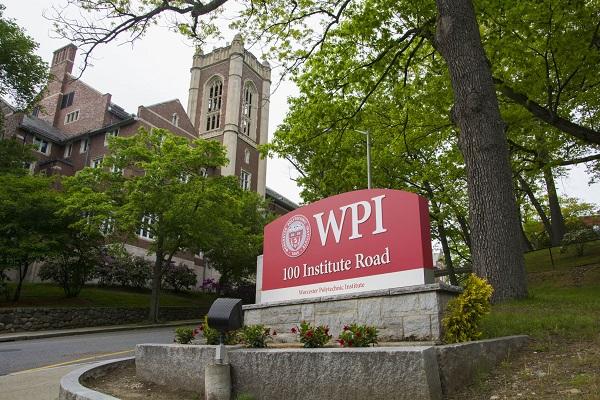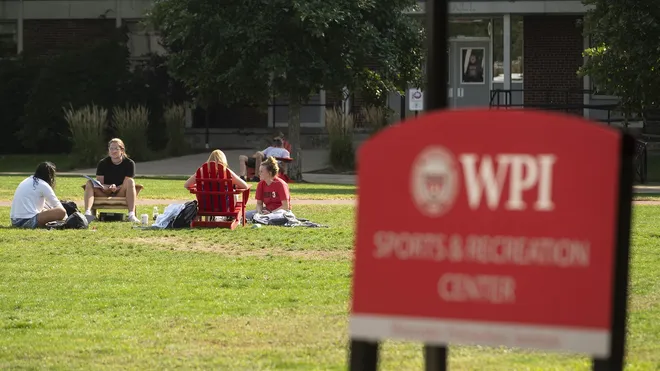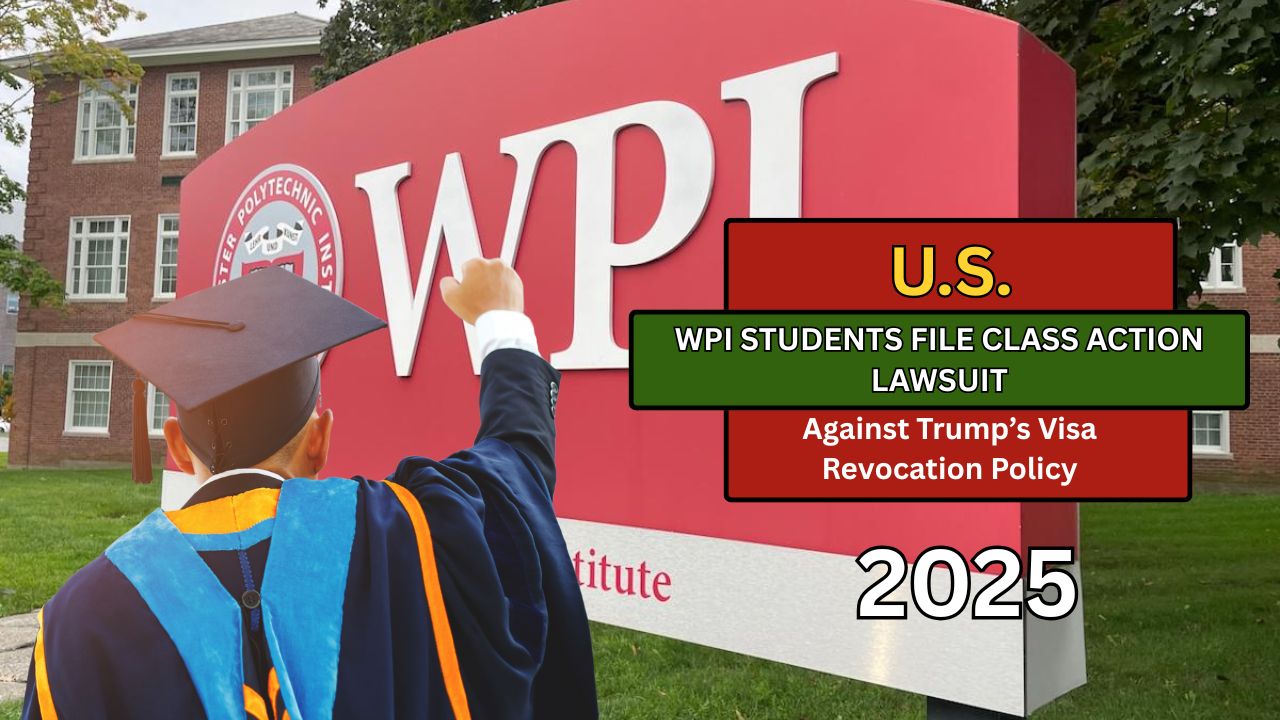Two international students from Worcester Polytechnic Institute (WPI) have become part of a class action lawsuit challenging the Trump administration’s controversial revocation of their F-1 student visas.
The lawsuit alleges that their visas were terminated without prior notice or explanation, violating their due process rights under the U.S. Constitution.
This legal action highlights the growing concerns over the treatment of international students in the U.S., especially as the Trump administration enforces new policies regarding student visa status.
Background: A Growing Problem for International Students
In early April 2025, U.S. Immigration and Customs Enforcement (ICE), along with the Department of Homeland Security (DHS), revoked the legal status of thousands of international students by linking their immigration records to a national FBI database.

This action flagged students for minor or dismissed legal infractions, causing widespread confusion and panic across campuses. The decision not only targeted students with past infractions but also led to canceled plans, disrupted academic schedules, and fears of deportation.
The situation has drawn widespread criticism from immigration rights groups and lawmakers, who argue that such actions jeopardize the academic futures of international students.
The Trump administration defends the policy, citing national security concerns and the involvement of some students in pro-Palestinian protests and other activities deemed problematic by federal officials.
However, many argue that the policy unfairly targets students for minor offenses or events that occurred years ago.
The WPI Students’ Case: Zhang and An Speak Out
Two WPI students, Hangrui Zhang and Haoyang An, are among the over 1,100 individuals suing the Trump administration for the sudden and unexplained revocation of their F-1 student visas.
Both students, who are international students from China, argue that their rights were violated by this abrupt policy change.
Hangrui Zhang, a 23-year-old Ph.D. student in Electronic and Computer Science at WPI, was shocked when his visa was revoked on April 9, 2025. Zhang, who had maintained a perfect 4.0 GPA, had been a research assistant and was on track to graduate in the coming months.
His visa was revoked because of a misdemeanor charge from a year prior, which had been dismissed after a pretrial diversion agreement. Despite this, his student status was canceled without any formal notice or explanation.
Haoyang An, a 25-year-old master’s student at WPI, was equally affected. An, who had invested over $300,000 in his education, saw his visa revoked for a minor legal issue.
In 2023, An had been cited for driving without insurance—an infraction that was later dismissed. Nonetheless, his student visa was revoked, throwing his academic future into uncertainty.
Both Zhang and An argue that the Trump administration’s actions violated their constitutional rights under the Fifth Amendment, which guarantees due process protections.
They have joined a class action lawsuit filed in federal court in New Hampshire, which seeks the reinstatement of their visas and the prevention of future arbitrary terminations.
The Lawsuit: Seeking Justice and Accountability
The class action lawsuit, filed by the American Civil Liberties Union (ACLU) and the law firm Shaheen & Gordon, represents over 100 affected international students in New England and Puerto Rico.
The legal action demands the immediate reinstatement of F-1 student visas for those who were wrongfully terminated and calls for a permanent injunction to prevent future arbitrary revocations.
The plaintiffs in the case argue that the Trump administration violated their rights to fair notice and an opportunity to challenge the revocation of their visas.
The lawsuit further demands that the government explain the rationale behind its actions and ensure that future visa terminations are conducted in a lawful manner.
Lawyers involved in the case have argued that the policy disproportionately impacts students who have been involved in minor legal issues, many of which are unrelated to their academic work or their immigration status..

Wider Implications: The National Debate Over Immigration Policy
The controversy over the revocation of student visas has sparked a broader debate about U.S. immigration policies and the treatment of international students.
Critics argue that the Trump administration’s approach risks alienating talented students from around the world, undermining the U.S.’s reputation as a leader in higher education and innovation.
Many universities, including WPI, have expressed concern about the impact of the visa revocation on their international student populations.
The schools argue that the abrupt nature of the policy change disrupts students’ academic careers and raises questions about the fairness and transparency of the U.S. immigration system.
The U.S. government has justified the policy by citing national security concerns, especially in light of protests and activities on U.S. campuses involving some international students.
However, critics argue that these policies unfairly target students based on minor legal infractions or their participation in political activities unrelated to their academic status.
Some federal judges have already issued temporary restraining orders in multiple states, protecting students from deportation while their lawsuits proceed.
The Road Ahead: What’s Next for Affected Students?
As the legal battle continues, international students like Zhang and An are left in limbo, uncertain about their futures in the United States. Many students fear that the policy could be extended to other groups of international students, further complicating the process of obtaining and maintaining student visas.
In the meantime, universities and legal advocates are calling for clearer guidelines and better protections for international students. They argue that the U.S. must preserve its standing as a destination for global talent while ensuring that students are treated fairly and equitably.
The outcome of this case could have significant implications for future immigration policies affecting students and other visa holders in the U.S. As the legal proceedings unfold, it remains to be seen whether the courts will rule in favor of the plaintiffs and whether the Trump administration will adjust its policies moving forward.
This article has been carefully fact-checked by our editorial team to ensure accuracy and eliminate any misleading information. We are committed to maintaining the highest standards of integrity in our content.

Deepak Grover is a dedicated content writer at OTE News, specializing in government affairs, public policy, and current events. With a keen eye for detail and a passion for factual reporting, he ensures readers receive accurate and insightful news. Deepak holds a degree in Political Science and has experience in research-driven journalism.
When not writing, he enjoys reading historical books, exploring hiking trails, and staying updated with global political trends. His commitment to ethical journalism makes him a trusted voice at OTE News.



